Coffee War: Italian espresso (Espresso) vs Italian super espresso (Ristr)
By T. A. Jay Edited by N. Bhatt
Have you ever heard of "Double Ristretto"? Have you ever met someone who had to drink this coffee in a coffee shop? What's going on? Is this some kind of code or magic word that makes coffee taste better? Do you order this coffee and three men in black come out of the kitchen to make it for you?
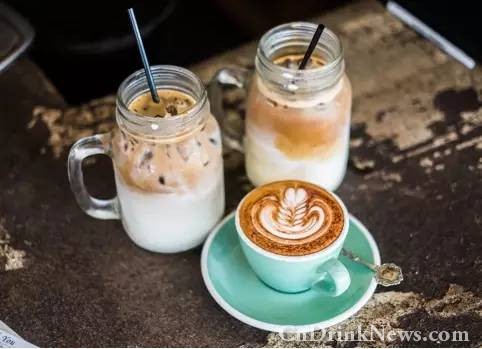
If only that were true. It wasn't a secret code, it wasn't some mysterious spell. Ristretto is just one of the rarer varieties of coffee. But what is certain is that people invented this coffee to further enhance the taste and quality of coffee. Huh? But isn't that steaming machine an espresso machine? Shouldn't it be espresso? If you have any questions, please read the following article carefully. In this article, I will introduce you to the difference between Italian espresso (Espresso) and Italian super espresso (Ristretto), and take you to the world of specialty coffee.
As we all know, espresso is the coffee we drink most often. This classic Italian coffee has long held an important place in our daily lives. But not long ago, with the rise of the boutique coffee concept, Italian espresso's status seemed to be wavering. Before we figure out why eccentric baristas with beards, tattoos, and "Chemex" sound so sniffy about espresso, let's understand what espresso is.
Espresso: coffee that must be sipped in a small cup with the thumbs up
Espresso is coffee made by filtering water under pressure through a powder cake in 30 seconds (mostly 30 ml). For Australia and new Zealand, espresso is the basis for their invention of Flat White coffee. All other varieties of cream-based coffee are ultimately derivatives of espresso. Italian espresso itself has a heavy taste and strong taste, which many people find difficult to accept. The word "Espresso" means "pressed" in Italian. In Italian traditional coffee culture, espresso coffee has become a symbol of "efficient" and "private customized service". Indeed, early espresso coffee made only one cup of coffee. This explains the origin of the name. Interestingly, in Portugal, the word "Espresso" means "dense" or "thick."
After listening to the above description, now you probably know what Italian espresso is, right?
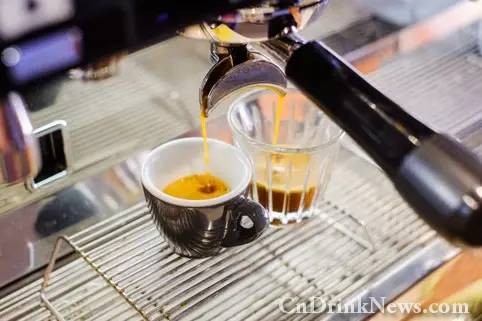
Two espresso cups being made simultaneously. The preparation time is about 30 seconds and each cup of coffee is about 30 ml.
Ristretto: Make sure you look serious when ordering
Restricted. That's right, the original meaning of the word ristretto is "restricted." Espresso is Italian espresso with special restrictions. Unlike espresso coffee, espresso coffee takes 15 seconds to make and the total amount of coffee is 15 ml. A single cup of espresso is small, even less than espresso, so baristas will most often make Double Ristretto, or 30 ml coffee in 15 seconds. Hey! Didn't you just say espresso is 30 cc and espresso is 15 cc? Well, you're right, but do you know that thing that baristas use to stuff coffee powder with a long handle has two slots? Take a look at the picture below and you'll know.
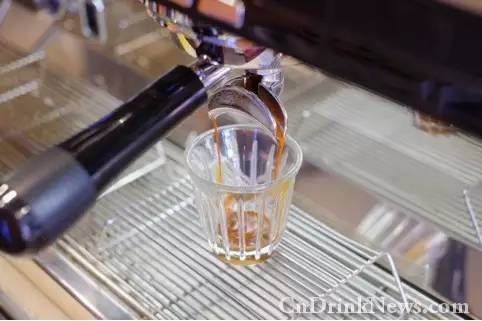
The barista is making double espresso: two outlets simultaneously making 30 ml coffee in 15 seconds.
Espresso or Ristretto?
Now you have a rough idea of the technical differences. You may ask: What does this have to do with me? So let me ask you a question: Do you know if the latte you drink every day is made with double espresso or regular espresso? It's actually possible. Baristas opt for double espresso coffee in pursuit of a richer, smoother taste. Due to the shorter extraction time, the acidity of Italian espresso will be lighter. If the recipe is accurate, you can drink a latte made with double espresso without adding sugar, and the coffee will taste just as sweet and palatable.
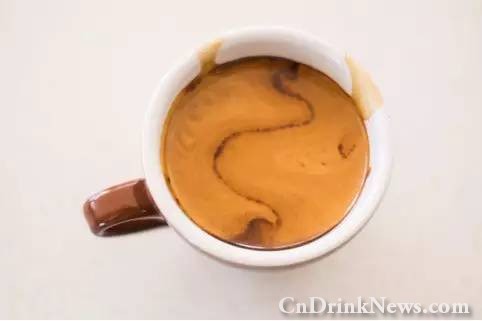
Subtle differences: See the curve in the middle of this cup of coffee above? If you have this line in the middle of your coffee fat, it means it's a double espresso made with two heads.
In contrast, traditional Italian espresso coffee has a higher acidity. If it fails, the coffee will taste bitter and unacceptable. So why are so many people obsessed with espresso? If made well, a good espresso will taste completely undiluted by milk, and the pleasant taste and intense aroma will hit your taste buds. Of course, some people will say that the quality of milk is also very important, you have to calculate how much sugar in the milk; others say that baristas have to clean the equipment regularly, so that old coffee powder does not affect the taste of coffee…but our topic today is only coffee itself. If you're so serious, you might as well make your own coffee at home.
Double choice, double pleasure!
Now you know the difference between espresso and espresso! I am not saying which coffee is better, you need to choose the coffee that best suits you according to your taste preferences. Next time you go to a coffee shop, don't be shy and just say what kind of latte you want. You can also ask them what kind of coffee they usually use and keep trying new coffee varieties. But if you want to explore the nuances of taste, I suggest you drink it neat!
Important Notice :
前街咖啡 FrontStreet Coffee has moved to new addredd:
FrontStreet Coffee Address: 315,Donghua East Road,GuangZhou
Tel:020 38364473
- Prev
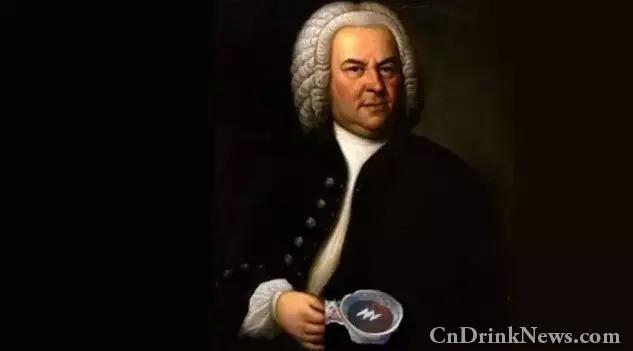
Can drinking coffee boost your IQ? From Beethoven to David Lynch, coffee-obsessed geniuses
There are all kinds of legends about coffee addicts, perhaps the most famous being Balzac, who said he drank tens of thousands of cups of coffee when he wrote "Human Comedy," which adds up to 50 cups a day. There is a saying that if a person drinks 80-100 cups of coffee in a row, it will be fatal. I hope no one will try it in person. In short, drink more and look less at your physique. [1] Bach once wrote
- Next

Is instant coffee good or bad?
Coffee is one of the main drinks of human beings, and it is an indispensable thing for many people every day. Chinese people have always given priority to drinking tea. in recent years, coffee has entered Chinese society in a fashionable manner, and the number of people who drink coffee has gradually increased. Drinking coffee overseas, as it has become an important part of social life, the conditions for making coffee are available everywhere. People drink freshly brewed coffee and seldom drink instant coffee.
Related
- Can I make coffee a second time in an Italian hand-brewed mocha pot? Why can't coffee be brewed several times like tea leaves?
- Hand-brewed coffee flows with a knife and a tornado. How to brew it? What is the proportion of grinding water and water temperature divided into?
- What is the difference between Indonesian Sumatra Mantinin coffee and gold Mantinin? How to distinguish between real and fake golden Mantelin coffee?
- What does bypass mean in coffee? Why can hand-brewed coffee and water make it better?
- Unexpected! Ruixing Telunsu lattes use a smoothie machine to foam milk?!
- % Arabia's first store in Henan opens into the village?! Netizen: Thought it was P's
- Does an authentic standard mocha coffee recipe use chocolate sauce or powder? Mocha Latte/Dirty Coffee/Salty Mocha Coffee Recipe Share!
- What is the difference between Vietnam egg coffee and Norway egg coffee? Hand-brewed single product coffee filter paper filter cloth filter flat solution!
- What is the difference between sun-cured and honey-treated coffee? What are the differences in the flavor characteristics of sun-honey coffee?
- How to make Italian latte! How much milk does a standard latte use/what should the ratio of coffee to milk be?

